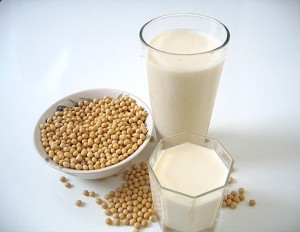 They are plenty of ways to meet your protein needs, without having to eat meat. The food industry has made leaps and bounds in terms of offering nutritious and delicious vegetarian options for helping you get the protein you need. However, these products are not just for the vegetarian, even you meat lovers can sample these foods and incorporate them into your diet to switch it up and add some spice to your meals!
They are plenty of ways to meet your protein needs, without having to eat meat. The food industry has made leaps and bounds in terms of offering nutritious and delicious vegetarian options for helping you get the protein you need. However, these products are not just for the vegetarian, even you meat lovers can sample these foods and incorporate them into your diet to switch it up and add some spice to your meals!
Soy (soy nuts, edamame, tofu)
- May help reduce calories, saturated fat and cholesterol when substituted for meat.
- Provides your body with isoflavones that have been proven to work wonders on your body and health
Try these:
- Soy milk, but check that it’s fortified with calcium and B vitamins
- Tofu, use this spongy soy product in stir-fry dishes or scramble it like an egg.
- Roasted soy nuts taste similar to peanuts.
- Soy burger, looks and tastes similar to ground beef.
 Beans and Legumes (black, lima, black-eyed peas, lentils, chickpeas, red kidney beans)
Beans and Legumes (black, lima, black-eyed peas, lentils, chickpeas, red kidney beans)
- Low in fat, contain no cholesterol, and high in folate, potassium, iron and magnesium.
- Are among the most versatile and nutritious foods available.
- Many stores carry a wide variety of legumes (dried and canned).
Try these ways to incorporate more legumes into your meals and snacks:
- Instead of chips or crackers, snack on a handful of soy nuts.
- Use pureed beans as the base for dips and spreads.
- Add chickpeas, black beans, or any canned bean to salads.
- The healthiest choices are walnuts, almonds, macadamia nuts, hazelnuts and pecans. These have shown to be heart healthy and contain high amounts of heart-healthy omega-3 fatty acids.
- Keep in mind, you don’t want to eat the nuts covered with chocolate, sugar or salt, which could end up canceling out the heart-healthy benefits.
- Because nuts are high in fat (although it’s a healthy fat) and calories, it’s recommended to consume a small handful of nuts a day (1 to 2 ounces).

